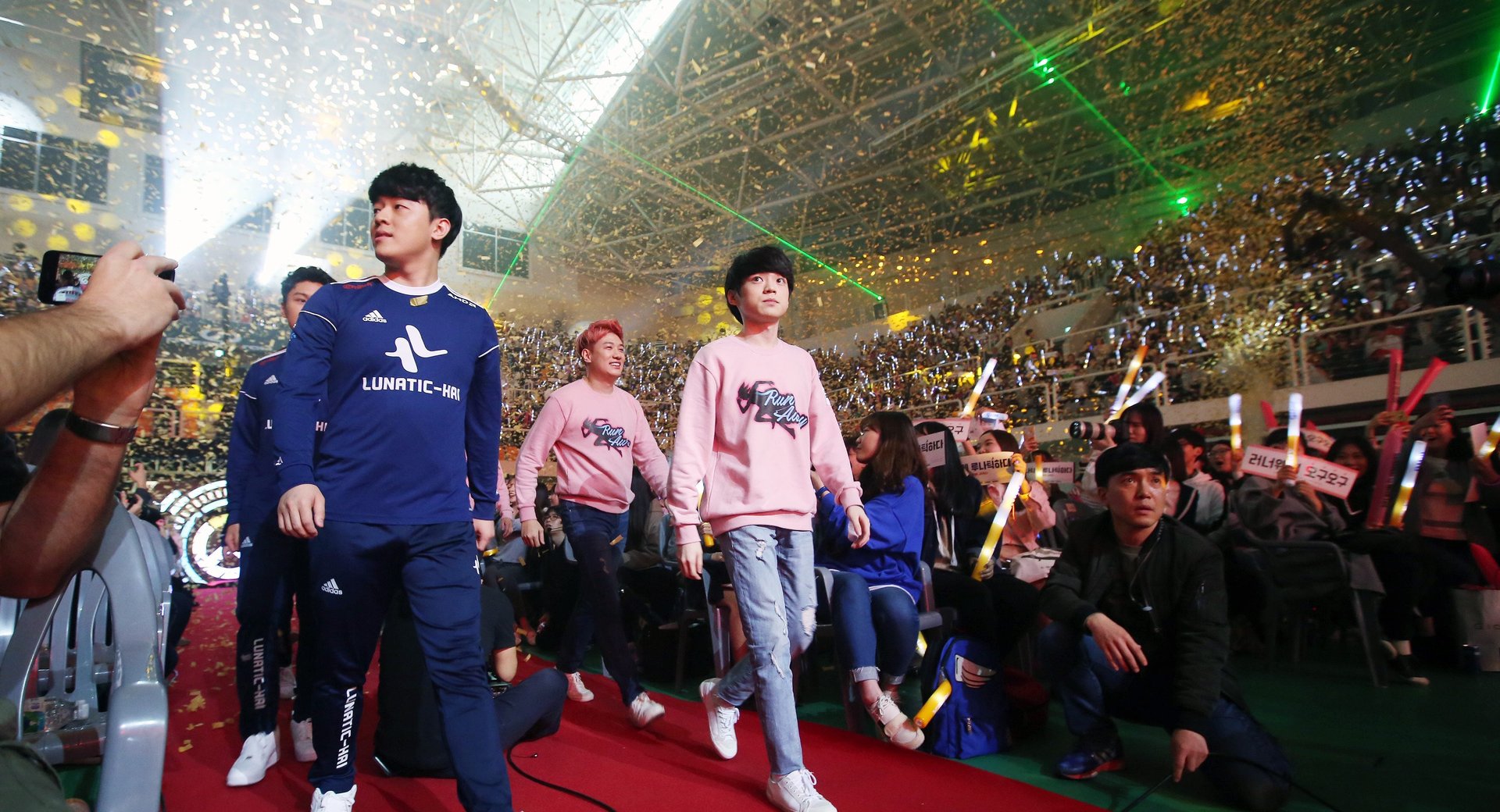Blizzard’s billion-dollar video game is forming a league with real home teams
“Root, root, root for the home team, if they get killed it’s a shame / ‘cuz it’s one, two, three rounds you’re out in the old Overwatch gaaaaame.”


“Root, root, root for the home team, if they get killed it’s a shame / ‘cuz it’s one, two, three rounds you’re out in the old Overwatch gaaaaame.”
That probably won’t be sung during the upcoming official matches of Blizzard’s billion-dollar game Overwatch, but the newly formed league is actually trying to take a page from traditional sports in a big way: You’re going to have a regional Overwatch team.
The Overwatch League officially announced its first seven professional teams, which will compete three times a week for a regularly scheduled season. Each team will be anchored to a major city, hoping to drum up local support.
The initial teams will be based in New York, Boston, San Francisco, Los Angeles, Miami, Orlando, Shanghai, and Seoul. Teams in the US northeast will benefit from the experience of traditional sports owners—Boston’s team was bought by the NFL’s New England Patriots owner Robert Kraft, and the New York team by MLB’s New York Mets COO Jeff Wilpon.
Traditionally, eSports teams have been more like auto-racing teams, sponsored by companies rather than representing cities or regions.
Blizzard priced the teams at $20 million, paid over time, according to an ESPN report. Teams will share an undisclosed percentage of the league’s revenue from “league-wide advertising, ticketing, and broadcast rights deals,” according to the league, though ESPN reports that shared money could be withheld until 2021. BBC reports a $20 million per-team price with an immediate 50% revenue split.
However, teams will be able to keep revenue generated locally from ticket sales, concessions and local sponsorships, up to an undisclosed amount. A statement provided to Quartz by Blizzard did not disclose revenue-sharing figures or mention any revenue withholding. Ticket sales and local events can still be lucrative—The International, a yearly Dota 2 championship, sold out Seattle’s 18,000-seat KeyArena in 2015 and 2016, charging $100 per ticket.
Overwatch players will be able to support their local teams by buying branded in-game items—50% of that revenue will go to the teams.
Part of the game’s mass appeal, Overwatch director Jeff Kaplan told journalists in May, is the diversity of relatable characters and locations represented in play.
“The real goal was to create this inclusive mindset that ‘Overwatch is a place where I belong, and at least I’m welcome here, and someday there might be a hero from my hometown,'” Kaplan said. “That’s been one of the things that I think has made our community respond to the game the most.”